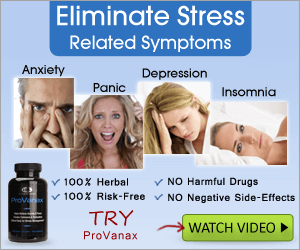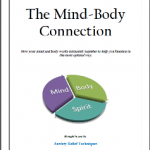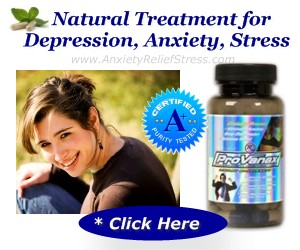Are You Taking Anxiety Medications?
Anxiety medications are ranked fifth among the highest selling drugs in the world. This is such a sad reality. If you find yourself suffering from anxiety please keep in mind that taking anxiety medications can be extremely addictive, so although it is a treatment that is usually administered it may not be the best treatment for long term anxiety relief.
How Anxiety Medications Work

Anxiety Medicines
Anxiety medications primarily work to control the excitability in the brain. There are plenty of drugs which also have varied action mechanisms.
There are those that take effect far quicker than any other medications, but there are also prescription drugs that are being excreted slower than others.
One example of this type of drug is benzodiazepine which includes Valium, Xanax, Ativan and Klonopin. Benzodiazepines have been known for its fast acting relief and is one of the medication options for treating anxiety.
These medications work by binding with the brain cells that use the neurotransmitters to be able to respond with each other. Once these medications are tied to the parts of the brain cells the anxiety symptoms are reduced.
Why Anxiety Medications are Addictive
These types of prescriptions are often taken long term. Many people don’t realize that once they stop the use of these medications they will experience severe withdrawals as one of the side effects. Unfortunately many people need and want fast relief from their anxiety and panic attacks, so they need and prefer to take these medications as often as necessary.
These drugs are habit forming which would mean that its effectiveness may no longer be felt if taken on a regular basis. The American Academy of Family Physicians revealed that the therapeutic effect of benzodiazepines will eventually be reduced after approximately six months of regular intake. Consequently, the patient would require a higher dosage making it even more difficult to stop taking the prescribed medication.
Therefore, the need for the higher dosage would be for them to achieve the same level of relief as they experienced before. The result, could very well end up in addiction.
The Psychological Effects of Anxiety Medications
Taking anxiety medications can lead to psychological dependence and that is a well known fact. If a person becomes too reliant on these drugs in the hope of coping with their type of anxiety disorder, they would eventually develop a reliance on them and they could become an indispensable part of their lives. This will lead them to believing that they can never achieve the level of confidence and productivity that they need without the help of these anxiety medications.
- It becomes a viscous cycle with no happy ending in site.
Any medication aimed at altering the mental state of a person, that allows them to experience a heightened sense of pleasure, decreased levels of anxiety, improved appetite for food and sex has the tendency to be addictive. The side effects may vary in severity from one person to another. These may include confusion, dizziness, memory loss, sexual dysfunction and seizure. Plus as with any drugs there is the added warning that they can be lethal.
Other Types of Anxiety Drugs
- SSRIs (Selective Serotonin Reuptake Inhibitors)
- SNRIs (Serotonin Norepinephrine Reuptake Inhibitors)
- Gabapentin
- Buspirone
- Hydroxyzine
Certain supplementation can be beneficial as well. For instance, recent research suggests theanine (the relaxing component of green tea) can help calm anxiety even with difficult to treat schizophrenia and schizo-affective patients. Specific nutrients such as niacinamide, tyrosine and tryptophan may work on the same mechanisms as medications, but with minimal side effects. Magnesium, glycine, and vitamin B6 are important co-factors that can help the body’s neurotransmitter production. I also recommend time-tested herbal remedies such as valerian, schizandra, and passiflora incarnata for short term help with unmanageable anxiousness. Original Source
It is equally important to note these natural treatments for anxiety, including meditation, yoga, deep breathing, herbal teas, natural supplements and more. Identify the triggers that cause your anxiety and focus on ways to prevent, reduce or eliminate its underlying causes instead of using these medications. Otherwise, the entire treatment process becomes futile. You do have options, so ask your doctor what they are and please understand the pros and cons of taking anxiety medications.
Affiliate Disclosure
My website contains affiliate links, which means if you purchase any products mentioned in my articles, I may receive a commission. If you do, thank you!






I am on Buspar, I didn’t know it can become addicting!
Hi Lauren, it’s so good to see you here! I love you visiting my website 🙂
Now, let’s talk about your Buspar. As you know I am not a doctor, I just love sharing my thoughts on natural solutions and healthy living, but I do worry about the use of prescription medications…for anything.
In my research on anxiety medications the one thing that stands out is the dependancy of so many of the medications.
I went looking for medical documentation to share with you and I found this:
“The trade name for buspirone, Buspar is an anomaly of the anti-anxiety medications as it is not chemically or pharmacologically related to benzodiazepines, barbiturates or sedative drugs. Instead, it activates Serotonin and acts on Dopamine receptors in the brain. Instead, Buspar is part of the azaspirodecanedione class of compounds and is often promoted as non-sedative, non-addictive and relatively safe.
In addition to the treatment of anxiety disorders, Buspar is also used to address the short-term relief of fear, tension, irritability, dizziness, pounding heartbeat and other physical purposes. In addition to Buspar, buspirone is also available as Ansial, Ansiced, Anxiron, Axoren, Bespar, Buspimen, Buspinol, Buspiron, Buspisal, Narol, Spamilan, Spitomin and Sorbon.”
…so it is prescribed as being non-addictive…
“Some industry experts, including physicians, disagree. They argue that like all minor tranquilizers, Buspar is habit forming and addictive. As a result, the drug can cause life-threatening neurological reactions.”
…so some disagree…who do we believe? The article then goes on to say…
“As Buspar is a drug that is taken for long periods of time, even if a person has not developed a physiological (physical) dependence on the drug, they will likely develop a psychological dependence, requiring assistance in the discontinuation.” (Source)
…so in easy to understand terms, if the drug isn’t addictive, a person may still become dependent on it and still need help to slowly come of it.
If you have more questions just ask me Lauren.
Wow,I never knew that Jennifer, I been on Buspar for years! Yikes! 🙁
Your doctor knows you Lauren. If they have had you on Buspar for years it must be helping you. You can always ask them questions, after all it is your body.
I’ve just written this article, not to scare anyone, but to make people aware about potential addiction or withdrawal side effects.
Any medications that are for pain or ‘numbing’ have the potential to give negative side effects. Plus, some people are affected and others are not. It depends on the person.
If Buspar is helping you Lauren and you trust your doctor then they should be able to answer any questions regarding your own anxiety levels and dosage.
Again I am not a doctor…and they probably would class me as a ‘natural’ nut…and they would be right 🙂